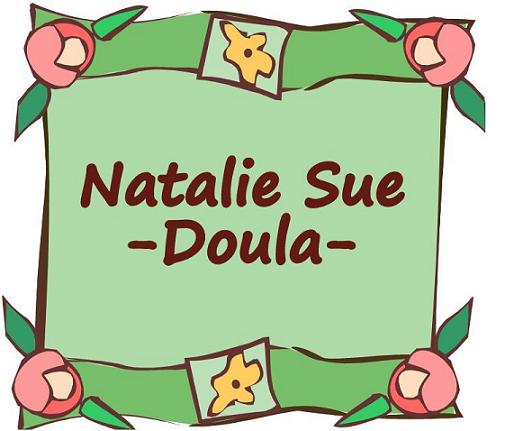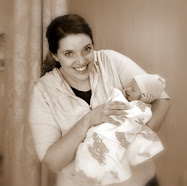This is not a post about natural birth. Just keep reading.
When I was preparing to give birth, I saw it as a once-in-a-lifetime event and something I wanted, more than anything, to do “right.” By doing it “right,” I meant that I wanted the safest and most positive outcome possible; to me, it was perfectly obvious that safety and a good experience were inextricably linked. And, as the person playing the most active role in the event, I felt it was my responsibility to shape those things.
It was a little alarming to me that so many of my friends and acquaintances who had given birth did not particularly want to talk about it, and didn’t necessarily think it was a good idea that I learned as much as I could about it before doing it.
Before and after giving birth, I got the sense from some people that in seeking a “positive” experience, I was being high-maintenance and was somehow less concerned with my baby’s well-being than someone who didn’t ask questions or want to actively participate. I rolled my eyes at the speculation and barreled right through it, but, on reflection, it struck me as odd. How could it be “selfish” to do what I could to facilitate a less traumatic birth? Didn’t less traumatic mean “safer”? My body—a body I’d come to know and like for the last 30-some years—was being subjected to a major, life-altering process. Why did it suddenly have such reduced value? Why was I suddenly not supposed to have any say over what happened to it?
And . . . why did people assume that my baby’s safety must be lower on my priority list, because I wanted his birth to be a positive experience?
That’s a doozy of an assumption.
Prior to giving birth, my primary motivations for attempting a normal, unmedicated, physiologic birth were so that my baby wouldn’t be born with drugs in his system; so that we could benefit from the dance of hormones science hasn’t come close to replicating; and so we could avoid the dreaded “cascade of interventions” that ends in 1 in 3 American babies being born by surgery. All of these things meant healthier bodies, better bonding, and a higher chance of successful breastfeeding. That was selfish?
When I first began researching birth and options, I went in completely biased against unmedicated birth (why would anyone choose pain?), but what I found didn’t support my bias. I found, to my complete surprise, that it was possible to give birth with dignity and humanity, and that, on the whole, those births seemed to be the least medically risky. Over and over again, I saw that the births where women were supported in the process rather than managed like children–where mom was treated by her skilled, attentive providers as the most important person in the room–the smoother the birth and the safer the baby. Bingo.
Choices in birth are very personal. I do not believe that every woman should, must, or can have a physiologic birth. That fact does not change a word that I write here.
It was only after I gave birth that I grasped the real value of what I instinctively wanted. I’m not sure I knew it then, but my tendency toward a physiologic birth was me protecting myself and my baby. But the bigger picture is that if birth were merely a day or two out of our lives, I wouldn’t have gone on to devote my time to this cause. Birth carries a much bigger impact than a one-time mere medical event.
Birth is valuable because it is the beginning of the mother-baby relationship.
Once you have been a mother, you will never not be a mother again. The minute you go into labor, you are on a rollercoaster that doesn’t stop.
The way you meet your baby can very much set the tone for the postpartum period. It is a tough time. You’re unsure of yourself, on no sleep, hoping you don’t accidentally harm or starve this helpless, completely dependent little thing. The stress of a baby crying for no discernable reason is indescribable. I don’t recall ever feeling so frustrated in my life. We all laugh about those moments of irrationality, when you have to place your baby in her crib and walk away in order to keep your sanity.
I have seen first-hand how the birth experience impacts this time. I came off my baby’s birth strengthened and confident—in complete awe of what my body had done. And it was still the most difficult time I’ve ever had. I’ve seen what happens when women come off a traumatic birth, too, and I’ve seen the lack of spirit and the helplessness they sometimes exhibit. I’ve talked to the women who spent hours crying in the basement or listless in bed, unable to get it together, or just dragging through the day with no joy. Even the women who rally and carry on are carrying wounds they must wrestle with at some point or another.
When I say “traumatic birth,” I’m not talking about medical complications. I’m talking largely about healthy women with realistic expectations who were treated disrespectfully or without compassion at that most vulnerable time: women who weren’t treated like the most important person in the room, as they gave birth to the most important thing in the world.
Feelings of desperation, low spirits, and worse plague a new mother and affect how she nurtures her baby. We’ve only begun to explore the connection between birth experiences and incidences of postpartum depression or post-traumatic stress disorder in new moms. Coming off birth strengthened and supported is invaluable to mom and baby.
Something we forget is that you are already a mother during birth. Birth and postpartum are your relationship with your baby as a new mom. The quality of that time is something you will remember all your life. Saying that what happens with you and your baby during and after birth doesn’t matter is the same as saying it doesn’t matter whether you bond with your toddler or that it doesn’t matter whether your teenager hates you. Birth is part of your life as a mother. This is your life.
Birth is valuable because women matter.
It’s a dangerous assumption I alluded to above: that only a woman who doesn’t care about her baby would care about her body and her birth. It’s damaging and wrong to communicate to women that we must make a choice between ourselves and our babies, because we can’t both matter.
Acting as if a baby’s safety is compromised by treating his mother well in birth is ludicrous, and I’d like to call for an end to that. If I could go back in time, I’d ask those people who questioned me to please explain how I was the most important factor in pregnancy and the least important in birth. How my value as a person deserving of positive experiences plummeted so dramatically when I crossed the threshold from pregnant woman to woman in labor. And how on earth treating my body well in pregnancy was intuitive, but treating my body well in birth was not.
I’d say to those people, “Explain to me again how it’s selfish to take my responsibility as a mother seriously?”
Simply by virtue of being human beings, women matter. We deserve respect, compassion, and kindness in birth, because we are human beings. But let’s not forget that greatest of responsibilities given to us as mothers: we are guardians of our babies. In pregnancy and birth, what happens to us happens to our babies. And because the ways in which our children come into the world are some of our first acts as mothers, our babies deserve for us to be treated as if we matter.
I encourage you to embrace that truth, and act as if you mean it.
_________________________
Cristen Pascucci is Vice President of ImprovingBirth.org.She is a political and communications strategist, and writes professionally.Contact her here to inquire about those services.


